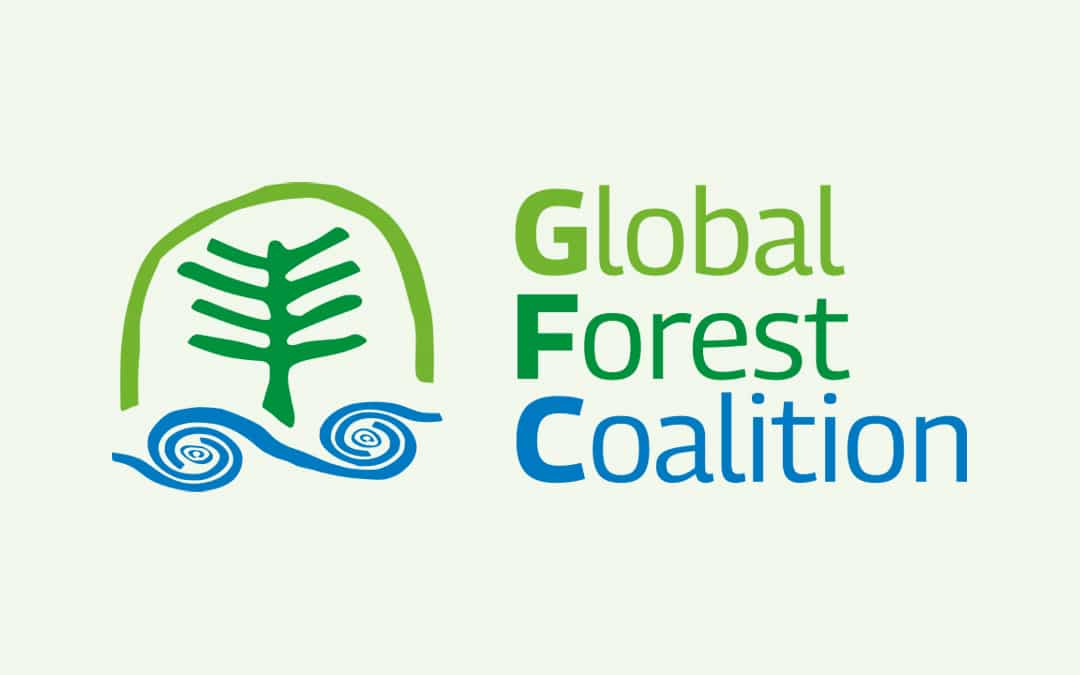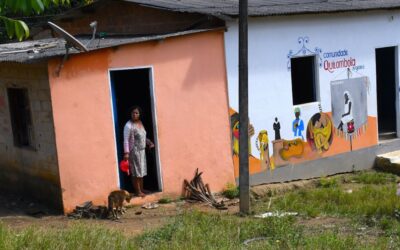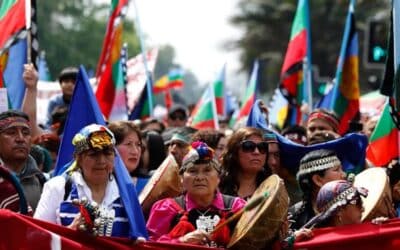by Ashish Kothari and Simone Lovera
Timed perhaps as a new year gift to the world, the UN Secretary General put out in December 2014 a boldly worded document ‘The Road to Dignity by 2030: Ending Poverty, Transforming All Lives and Protecting the Planet’. As a call to all countries to respond to the political, economic, and ecological crises we face, the document lays out a new agenda for the future, and steps towards the same. Ending poverty and inequality, tackling injustices of various kinds, ensuring health and inclusiveness (especially of women and children), sustaining the planet that sustains us, and achieving economic prosperity for all: these are the ingredients. But are the vision and the strategies laid out sufficiently transformative, helping us deal with the fundamental causes of our multiple crises?
The Secretary-General’s report builds on a number of previous initiatives under the aegis of the United Nations, including a number of high-level expert panels, the Open Working Group on Sustainable Development Goals, and the Sustainable Development Solutions Network (SDSN). Some of these have undertaken significant public consultation. The report comes at an opportune time, for the coming months will see the final negotiations on the Sustainable Development Goals (SDGs) and the overall post-2015 development agenda, for adoption at a special UN summit to be convened in September 2015. The SDGs will then replace the Millennium Development Goals (MDGs), which ran 2000 to 2015, as the pre-eminent negotiated framework for development across the globe.
The SDGs mark a welcome shift towards considering ecological sustainability as a fulcrum of all human activity, which was missing in the MDGs. Additionally, there is greater focus on the scourge of inequality than before. A number of other progressive features are contained in a draft negotiating text produced by the Open Working Group in July 2014, which will be the basis for the final outcome this year.
Unfortunately, though, there is little reason to be optimistic that the Secretary-General’s call for transformative action will be heeded. The call itself is not transformative enough, and those controlling the globe have shown little appetite for transformation. The repeated failure of climate negotiations in the last few years is a clear sign of the latter, as is the increasing inadequacy of the UN itself as a multilateral forum for peace and harmony. Unbridled global capital, and state powers serving capitalist elites and military interests rather than the interests of the general public, continue to cock a snook at the basic principles of equality, human rights, and ecological sustainability. Will this change because of the post-2015 SDGs?
The Secretary-General’s report has a number of strong points. It acknowledges that while the world has made substantial progress on many fronts, there are still “unacceptable — and unsustainable — levels of want, fear, discrimination, exploitation, injustice and environmental folly at all levels”. It strongly stresses sustainability, equity and justice, and the need to:
- mobilize diverse cultures and respect the worldview of ‘mother earth’ present in many traditions
- integrate economic, environmental and social goals (the MDGs having missed such integration)
- protect the life-support ecological processes we all depend on
- develop alternative measures of progress (beyond GDP), including subjective well-being
- carry out innovative resource-raising through global taxes on environmentally destructive activities and on financial transactions
- base actions on the best available information and data, publicly accessible
- make business and companies more socially and ecologically accountable
- remove fossil fuel and agricultural export subsidies
- take strong steps for monitoring and assessing progress towards meeting SDGs
Notwithstanding the above, the report contains the same flaws that previous reports of the post-2015 process have. The message of transformation could have been punchier had it contained an analysis of the structural roots of poverty, hunger, unsustainability and inequities, which include the influence of corporate and other wealthy elites over public governance, science and technology and the mass media, and/or the excessive concentration of power in the hands of the state in many countries. Without such a diagnosis, it is inevitable that the prescriptions will not be transformative enough. From the time of the Rio+20 summit (2012), every UN report on the post-2015 Agenda has lacked such a diagnosis.
The report’s call for more accountable and participatory governance is welcome, but does not go the distance. It fails to advocate the concept of direct democracy which allows every local rural and urban community and individual to have a central say in decision-making, and representative democracy is subservient to such governance. An essential part of this is the demand of indigenous peoples across the world, to self-determination, which is accepted in the UN Declaration on the Rights of Indigenous Peoples, but not yet in most national constitutions or laws.
Then, although it makes a clear call to ‘preserve the Earth’s life-support systems for future generations’, the report continues to promote economic growth as the means to reach prosperity. Human activity has already crossed several planetary limits; we need global degrowth, along with radical redistribution so that peoples thus far deprived can gain without further threatening the earth. Increasing livelihood security, access to basic needs, health, learning, spiritual and cultural development and other human needs can be decoupled from material growth. But this also requires drastically cutting down the consumption levels of the global North, a point conveniently glossed over by every UN report on the post-2015 Agenda.
Coupled with the above, there is no acknowledgement of the inherent unsustainability and inequities of economic globalization in its current form This would have led the report to advocate localisation of economies to cut unsustainable transportation, empower people to be in control of their own lives, democratize markets, and provide a stable basis for global socio-economic and political relations. Food and energy sovereignty should be fostered and protected as central pillars of sustainable livelihoods.
Unfortunately, like all the post-2015 reports, this report contains an assumption of unilinearity of technological and economic progress. It is still about facilitating technology and financial transfers from industrialised (‘developed’) to other (‘developing’) countries, and not recognizing that there is a lot the latter can teach the former about sustainable ways of living. The report mentions indigenous knowledge once, but the equal importance of various forms of knowledge does not permeate the rest of the report; modern science and technology still gets priority. The traditional knowledge and customary practices of women and men all over the world, and their cultures, form a rich source of knowledge and inspiration for sustainable livelihoods. There is a call for ‘debt restructuring’, but it is not clear if this accounts for the enormous ecological and social debt that industrial countries owe to the countries they colonized or continue to extract materials and knowledge from.
While the report has a welcome assertion about making private corporations more accountable, it does not explicitly state the need for full public control over business;. This is the only way to ensure that business behaves responsibly, since otherwise there is a tendency for crony capitalism to prevail, as one sees today even in ‘socialist’ countries like India and China.
In its recommendations for making the UN “fit for transformation”, there is continued reliance on the nation-state and 20st century diplomatic practices as the primary locus of decision-making, and no words on how to restructure national and especially international governance structures so that non-state actors have greater say. This is despite recognizing that “none of today’s threats respect boundaries drawn by human beings, whether those boundaries are national borders, or boundaries of class, ability, age, gender, geography, ethnicity, or religion”. Ideally new decision-making structures that bring on board all partners needs to be envisaged; understandably the UN Secretary General would be overstepping his mandate if he were to recommend such fundamental restructuring, but surely he could have asserted how UN forums could be much more open to decision-making inputs from non-state actors, respecting humanity as one.
Perhaps most important, the report contains a basic flaw that every post-2015 report has had: no statement of the ethics and basic values of human well-being and development: empathy, compassion, respect, solidarity and cooperation, restraint and simplicity, as a powerful antidote to the greed, hatred, and envy that drives our socially and ecologically destructive behavior.
The Secretary-General asserts that “this is no time to succumb to political expediency, or to tolerate the lowest common denominators”. But this calls for radical transformation in local to global governance, and economic paradigms. Without this, the post-2015 agenda will be about reforms within the existing, deeply flawed system. Such reforms could be interim measures, but will by themselves not lead to a sustainable and equitable future.
———————-
Ashish is with Kalpavriksh, Pune, India chikikothari@gmail.com; Simone is with Global Forest Coalition, Asuncion, Paraguay, simone@forestcoalition.org. The original version of this article was published in http://www.thehindubusinessline.com/todays-paper/tp-opinion/bold-words-weak-vision/article6782274.ece © The Hindu Business Line




